18. A COLD WAR DEVELOPS

COLD WAR IDENTITIES
CONTENTS
 "Democracy" the central issue "Democracy" the central issue
 Ideological paranoia at home in America Ideological paranoia at home in America
 West Europe's position West Europe's position
 The West's Christian identity The West's Christian identity
 A tragic split between Middle America A tragic split between Middle America
and Intellectualist America
The textual material on page below is drawn directly from my work
A Moral History of Western Society © 2024, Volume Two, pages 254-265.
"DEMOCRACY" THE CENTRAL ISSUE |
What
was happening in the European world in the latter part of the 1940s was
that the military reality of a Europe divided into sectors of military
occupation and control was slowly turning itself into a political
reality of two distinct ideas of how a post-war world should eventually
take shape. And this in turn was becoming increasingly
frustrating for all parties involved … even bitter for those having the
chief responsibilities for directing the development of this postwar
world – Soviet Russia in the East and America in the West.
This East-West division was not primarily military in nature the way
things had developed in the buildup to World War Two … although there
were strong military components to this developing East-West
rivalry. It was a division that was most importantly political,
economic, social and especially ideological. But it was warlike
in the attitudes by which the major players in this East-West game
began to see and respond to each other. Thus it was indeed a
"Cold War."
"Democracy" the central issue
Interestingly, both sides in this contest saw themselves as defending
some version of "democracy." But the problem was that one side
(America and its Western Allies) saw democracy as government by the
people. The other side (Soviet Russia and its People's Republics)
saw democracy as government for the people.
Communism's "government for the people."
As hard as it is to believe that the paranoid and murderous Stalin was
in any way interested in democracy, he truly thought that he somehow
was carrying on Lenin's Communist legacy. Lenin of course, back
in the beginning of the 1920s – just after having fought a bitter
battle with forces representing an ancient Czarist political universe
and a small but rising middle class – knew that in attempting to
construct a workers' democracy he was up against a Russia that had
virtually no real experience in self-government. Russia was going
to need some guidance from socially and historically enlightened
leadership before the Russian people would be able to take on the
incredibly difficult challenge of self-government. Russia needed
to experience deep change … to move in a new direction, a direction
that supposedly only a handful of Marxist-trained leaders had the
background and perspective to understand. Thus Russia would have
to be in their hands … until such time that the State could finally
wither away and leave a classless society to govern itself. But
that was going to take some real doing … something that was also going
to take some time … lots of time.1
Stalinist "democracy."
Then Lenin's early death in 1924 threw newly established Soviet Russia
into a dispute as to the direction their Communist – or at least
Socialist – Revolution should then take them. Trotsky wanted to
use Russian developments only as a springboard to greater revolution
undertaken in the rest of Europe lying to the west. Stalin
opposed him and his supporters … because Stalin was personally a strong
Russian nationalist – interested really only in protecting the
political achievements recently secured in Russia. He wanted to
build up Russian Socialism … not spend valuable Soviet Russian assets
outside the country. As we have already seen, this debate grew
brutal.
After the Second World War, with Stalin and his army in command of huge
sections of Europe, his understanding of democracy was deeply immersed
in that same spirit of Russian nationalism – protecting and directing
social "revolution" from the Kremlin headquarters in Moscow.
Stalin was willing to support "proletarian democracy" in other
countries … but only to the extent that it deepened that sense of
Soviet Russian protection and control.
Was there anything unusual about those instincts? Not
really. Politicians played that same game everywhere … at least
to the extent that their actual power base allowed them to do so.
American "democracy" becomes its own form of nationalism.
America was an English-speaking nation … though in general it was not
pushy about extending the English-speaking world. At home,
immigrants coming to America took up the English language … though
simply because it made life in America easier to work with. There
was no absolute insistence on the matter from America itself.
Certainly being "White" mattered … at least to the multitudes of
descendants of the Africans brought earlier to America as slaves.
But beyond that, immigrants to America quickly found their way to their
own White world.
For a very long time Americans were deeply involved in spreading their
unique society across the North American continent … utilizing the same
nationalist energies stirring across the world among the world's
commoner classes. Indians and Mexicans felt the enormous pressure
of just such an American nationalist urge. So that's how America
did the nationalist "thing" pretty much up until the 20th century.
It was Wilson who then made "democracy" – such as Americans understood
the term – as the Absolute on which he intended to build a rising
American national spirit … as America entered the larger world
stage. Although such nationalism was built on no restrictive
linguistic or religious foundations, it certainly laid down a strong
social spirit on "Democratic" political-ideological lines … similar to
the way the Soviets did so along "Communist" political-ideological
lines. Expanding globally American-style constitutional democracy
would be the very ideal that would underpin the American urge to
international involvement.
America's Anti-Authoritarian Democracy
Actually, with the end of the Great War in 1918, America became quite
isolationist … except in instances of upper-level diplomatic efforts to
reduce the ability of nations to go to war.
But with the attack of Japan on Pearl Harbor in 1941 – and Hitler's
declaration of war against America three days later – all that changed
… deeply. Authoritarian Nazism or Fascism was now easily defined
as the great evil that America must help the other "democratic" nations
fight against. Such symbols of evil gave great moral clarity to
the effort patriotic Americans were willing to bring to the war.
But that "democratic" alliance included Stalin. Thus, with the
help of Roosevelt, the authoritarian character of Stalin's rule was
quietly overlooked in the thinking of Americans. Stalin was
simply the leader of one of our key allies, the Russians, in this war
against authoritarian Germany.
But that thinking would run into deep trouble after the war … not
immediately, but step by step. Confusion thus accompanied this
shift. Clearly now, Stalin was simply just another authoritarian
dictator … of the same order of Hitler and Mussolini. How had
they not seen this before?
Political ideology becomes the new game
Thus it was that with the development of the Cold War, the world was
actually dealing with a new version of the social spirit … built on
ideological rather than linguistic or religious foundations, ideologies
sponsored by one or the other of the world's two new superpowers,
America and Soviet Russia.
How dangerous this actually was for the world was never fully
appreciated by the new superpowers themselves. Ideology knows no
geographic bounds. Thus the game could in fact find itself played
out not just in this area or that … but across the entire globe.
Indeed, as the Cold War developed, it seemed that there was no event,
large or small, that did not invite the superpowers to calculate for
themselves the degree of win or loss such events meant for each of them.
And the words "Communism," (and for the Americans, also "Socialism"),
"Capitalism," "Democracy," "Iron Curtain," "Free-World," etc. took on
highly emotional content … so much so that just as nations fought each
other in World War One just because their enemies spoke a different
language, so in the Cold War they fought each other because either
"Communism" or "Free World Democracy" was to gain or lose position with
every rising development.
Thus whether Vietnamese independence from France should be supported or
opposed by America, ultimately depended on which of the ideologies it
would choose to identify itself by. Never mind that the Communist
Vietnamese were not close associates with the Communist Chinese.
In fact the Vietnamese disliked rather deeply their Communist neighbors
to the North.
And the fact that Communist China was not taking orders from Communist
Russia never factored into the American thinking or understanding of
Chinese developments. To Americans, all Communists are evil … and
thus must be opposed by the Democratic Free World. On the other
hand, according to Soviet thinking … all Capitalists are evil … and
must be opposed by the oppressed working classes (the
Socialist-Communists) of the world. Thus the only thing that
mattered to the superpowers was which label would this or that
government take on for itself … or which side in this great ideological
battle was to benefit from this or that development. Everything
depended on that single factor.
1Clearly
Lenin did not hold the utopian or "Humanist" view of Communism's
founder Karl Marx that democracy was instinctive to all people – and
that the only barrier to such democracy was the authoritarian rule of a
self-interested governing class … and that once that class was removed
from power, the natural human instinct for democracy would
automatically come into play. Obviously, Marx ignored the
strongly contradicting example of the French Revolution, a tragic event
that had occurred only a mere a half-century earlier than his famous
Communist Manifesto. Lenin was not so easily blinded by such
Humanism … which was rampant among intellectuals of those days (and in many cases since then).
IDEOLOGICAL PARANOIA AT HOME IN AMERICA |
Making
the situation even more difficult to deal with, there were a number of
Americans who had gone deeply into some kind of working relationship
with the ally Stalin during the war. That now as the Cold War
developed raised questions as to where they presently stood in this
matter of finding the American nation in deep opposition to everything
that Stalin represented. Could these individuals be trusted …
intellectuals mostly, found in both government service and the cultural
services (the world of literature and the movie industry principally)?
Thus it was that Congress's House Un-American Activities Committee
(HUAC … actually founded just before the war) was called on by 1947 to
begin looking into the matter – cheering Middle Americans … but
alarming much of the world of intellectualism. Brought under
critical inspection was the Hollywood filming industry … where writers
were known to have strong Leftist sympathies. Then the following
year (1948), as the Cold War intensified, HUAC brought charges of
Communist sympathies (even spying for Stalin) against a number of
Roosevelt's wartime advisors (the "Ware Group"), ultimately including
Alger Hiss … accused by Time magazine writer-editor Whittaker Chambers,
who admitted that he himself had once been a Communist and a Soviet
spy. He offered personal proof of Hiss's similar
allegiance. However … the American intellectual community
strongly defended Hiss as being falsely accused by lowbrow
"anti-Communist" rabble rousers – and in particular by Congressman
Richard Nixon, who was leading the Hiss investigation.2
Thus America was dividing socially. And it would only get worse in the years ahead.
2The
rising American intellectualist Left would never forgive Nixon … and do
everything possible to bring him down when he actually became U.S.
President.
The sentiment is growing
that Communism is threatening to do in the American nation "from within." Special targets of American
concern are certain Hollywood
personalities
with "Leftist" philosophies and even members of the U.S. State
Department
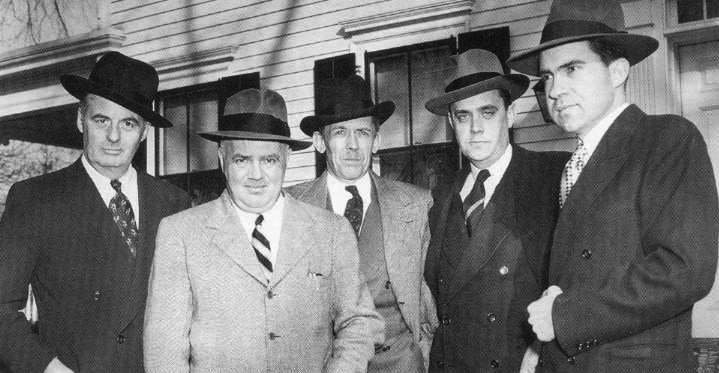
Republican members of the
House Un-American Activities Committee (HUAC) - 1948
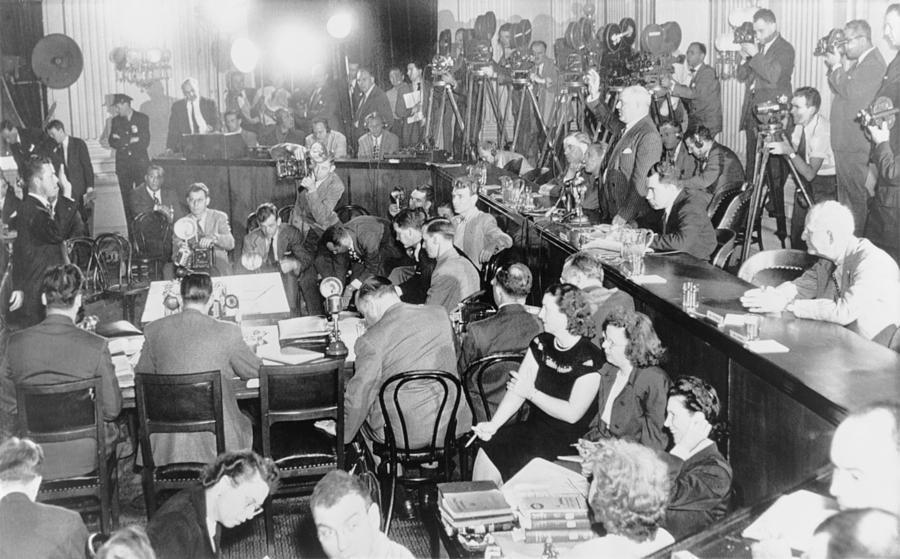
HUAC hearings of those accused of
having ... or having had ... Communist associations
A startling accusation was that
Hollywood
was full of Reds
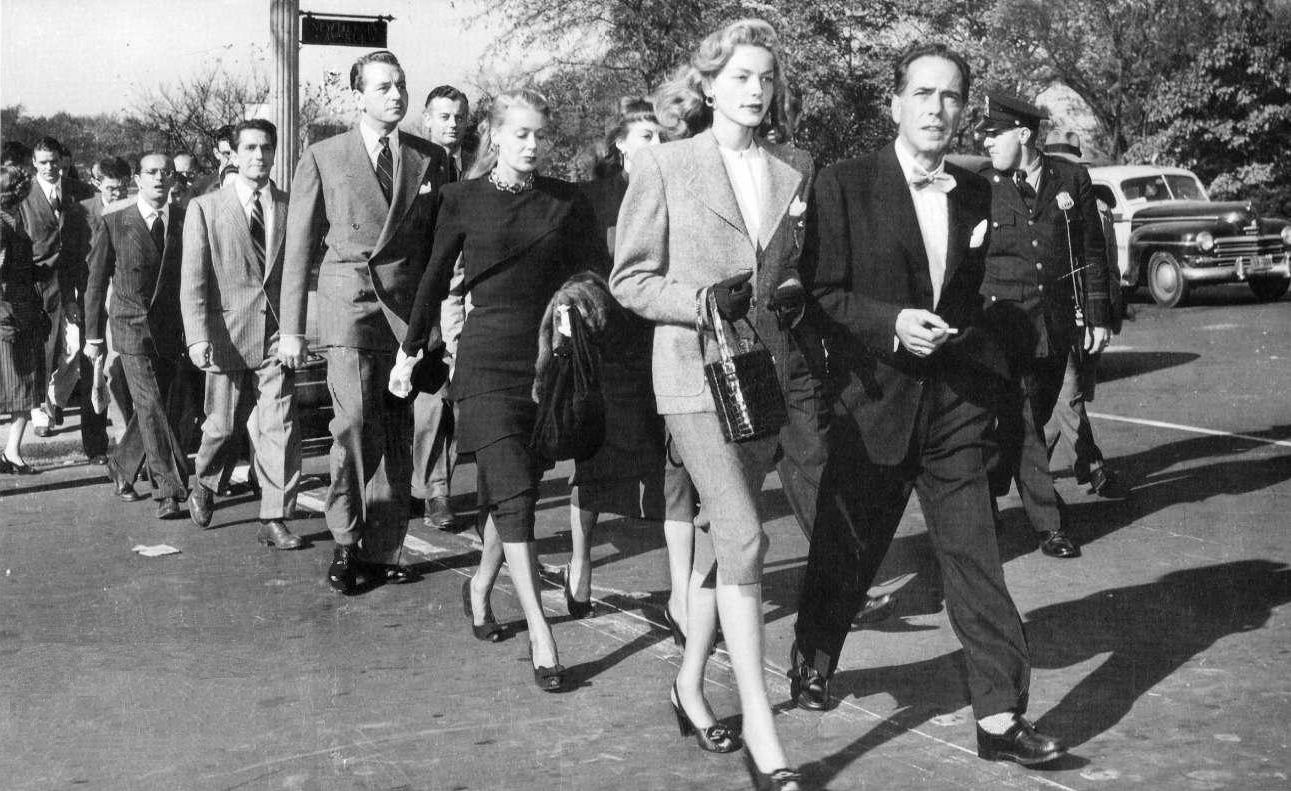
Hollywood stars (Lauren Bacall
and Humphrey Bogart in the lead) descend on the Capitol to
lodge their note of protest against HUAC's proceedings - 1947
The accusation that the U.S.
State Department purposely "lost" China to the Communists
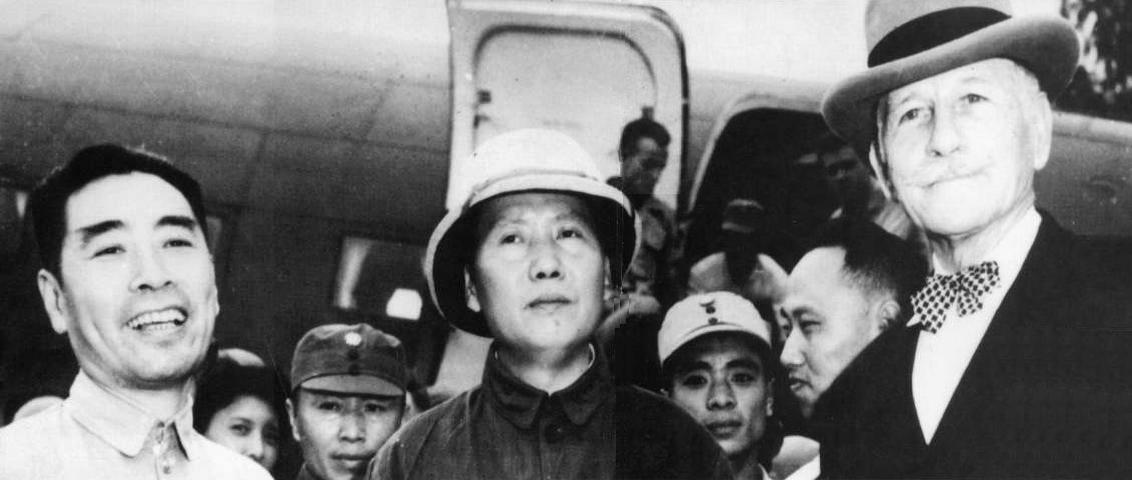
Patrick Hurley in China with
Communist leaders Zhou Enlai (left) and Mao Zedong (center) - 1945
National
Archives NA-208-PU-207W-2
| Hurley was commissioned to get the
Communist leaders together with the Nationalist leader Chiang Kai-shek
to form a Chinese post-war coalition government. But this effort
failed as Hurley threw his support to Chiang. The foreign service
officers working with him refused to go along with this. He later
accused the State Department of being pro-Communist and having 'lost' China
to Communism. |
The idea of the State Department
having "lost China to Communism" was coupled with
an accusation that the State
Department had also "sold out East Europe" to Stalin
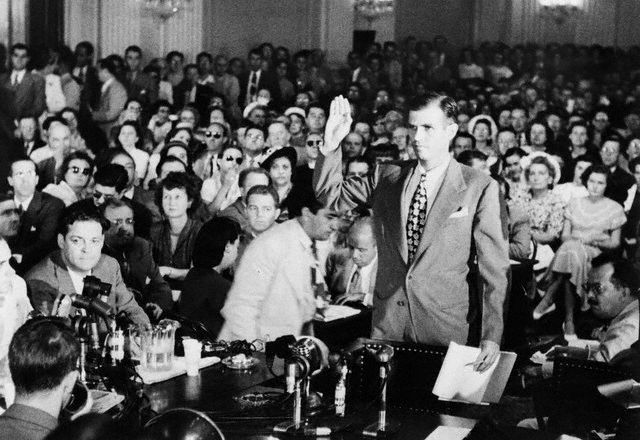
U.S. State Department official Alger
Hiss taking the oath before the HUAC
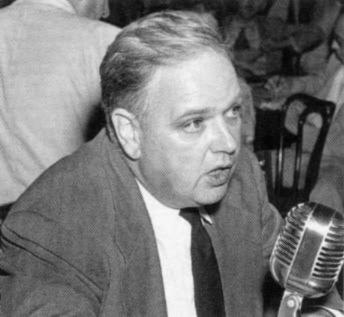 Whittaker Chambers accuses
Alger Hiss of passing information to the Soviets 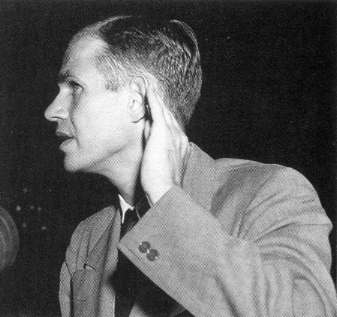
 
Richard Nixon (left), who
headed up the HUAC investigation of Alger Hiss (right) as a Soviet agent planted
high within the American foreign policy-making machine
Although
most of West Europe would place its strategic military defenses in the
hands of NATO, it would never become quite as "anti-Communist" as
America. Suspicious of Stalin, yes. But fervently
anti-Communist, no … something that Americans would always have a hard
time understanding.
Indeed, in both France and Italy, Communist Parties operated freely …
and widely, being the largest and best organized of those country's
parliamentary parties – even occupying typically a third of the seats
of their multi-party parliaments. And first-cousin Socialist
parties (typically "Social Democrats" … but in Britain the "Labor
Party") operated widely across West Europe … not infrequently the
actual parties in power there. And that idea would not change
substantially over the years.
Nonetheless, in the matter of nation defense, American-supported (and
led) NATO was a very useful institution for West Europeans.
Simply, it allowed European members to focus postwar development on
rebuilding their destroyed economic and social infrastructure rather
than spending huge amounts of money on national defense … which at this
point they felt that there was no way they could succeed anyway in
going it alone on their own national basis against the Stalinist power
buildup in the East. Their national defense was now an
international matter (thus NATO) … no longer just a national matter.
Indeed, in West Europe, nationalist impulses were quieted down deeply …
partly out of exhaustion and partly out of the understanding at this
point that their European world worked best when they all cooperated,
rather than opposed each other. And the Germans were more than
just supportive of the idea … because they had a huge national guilt to
get past – and a fear of what would happen if they got caught up in
some kind of German "thing" again.
West European internationalism: The ECSC
Thus it was that in 1950, French Foreign Minister Robert Schuman put
forward the idea (the Schuman Plan) of uniting the strategic national
industries of coal and steel production (absolutely vital for military
purposes) … by removing all trade restrictions – and even placing such
operations under some kind of international authority. Thus it
was that the following year (1951), Belgium, France, Italy, Luxembourg,
the Netherlands and West Germany signed the Treaty of Paris, setting up
the European Coal and Steel Community (ECSC), these vital industries
now operating under the command of a High Authority, directed by both a
Common Assembly and Special Council of member nations, and monitored by
a Court of Justice.
A very strong European unity movement was now up and running … and would merely expand over the years ahead.
|
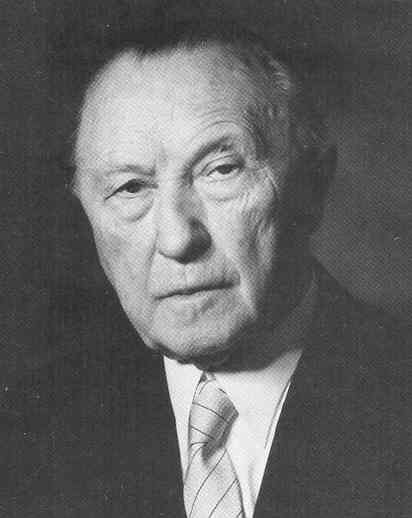 Konrad Adenauer - German
Chancellor: 1949-1963
Konrad Adenauer - German
Chancellor: 1949-1963
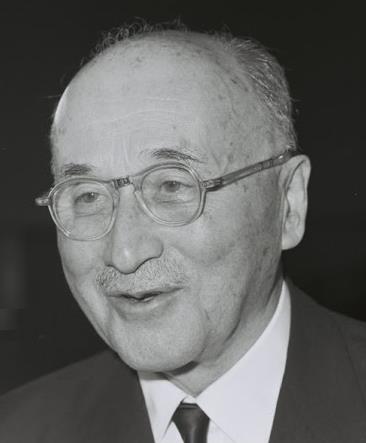
Jean
Monnet
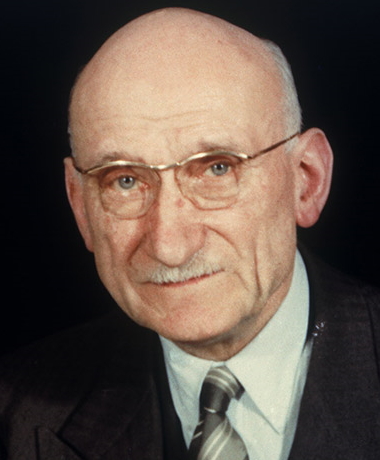
Robert Schuman
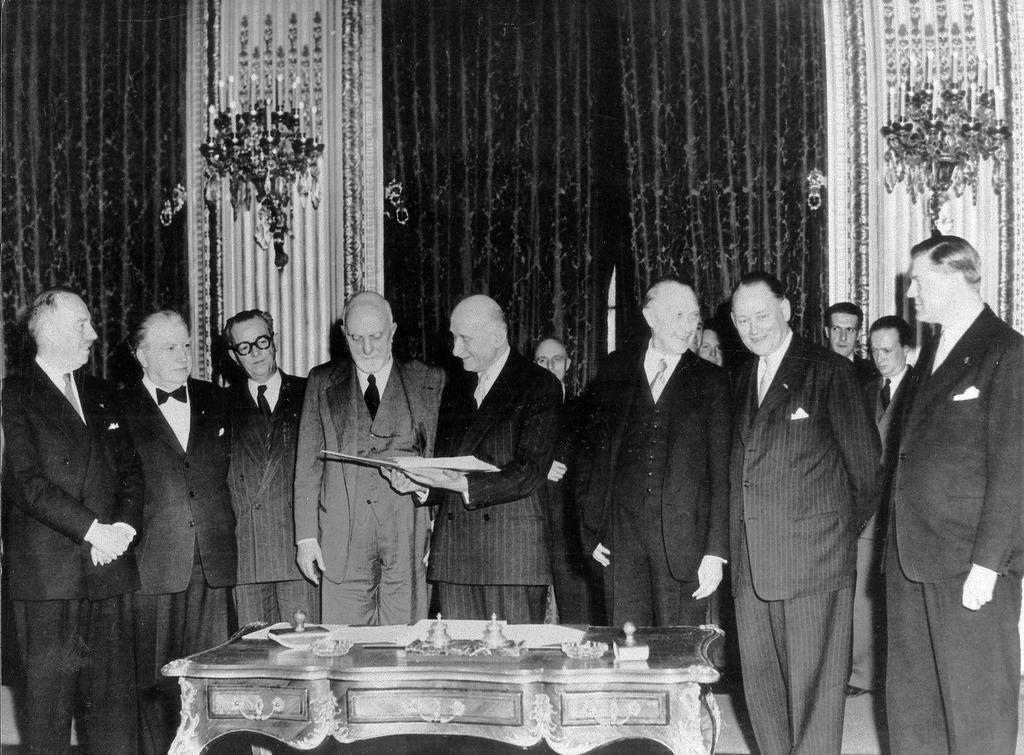
The signing of the Treaty of Paris (April 18, 1951)
by representatives of France, Italy, West Germany, the Netherlands, Luxembourg and Belgium
The British continue down their own path
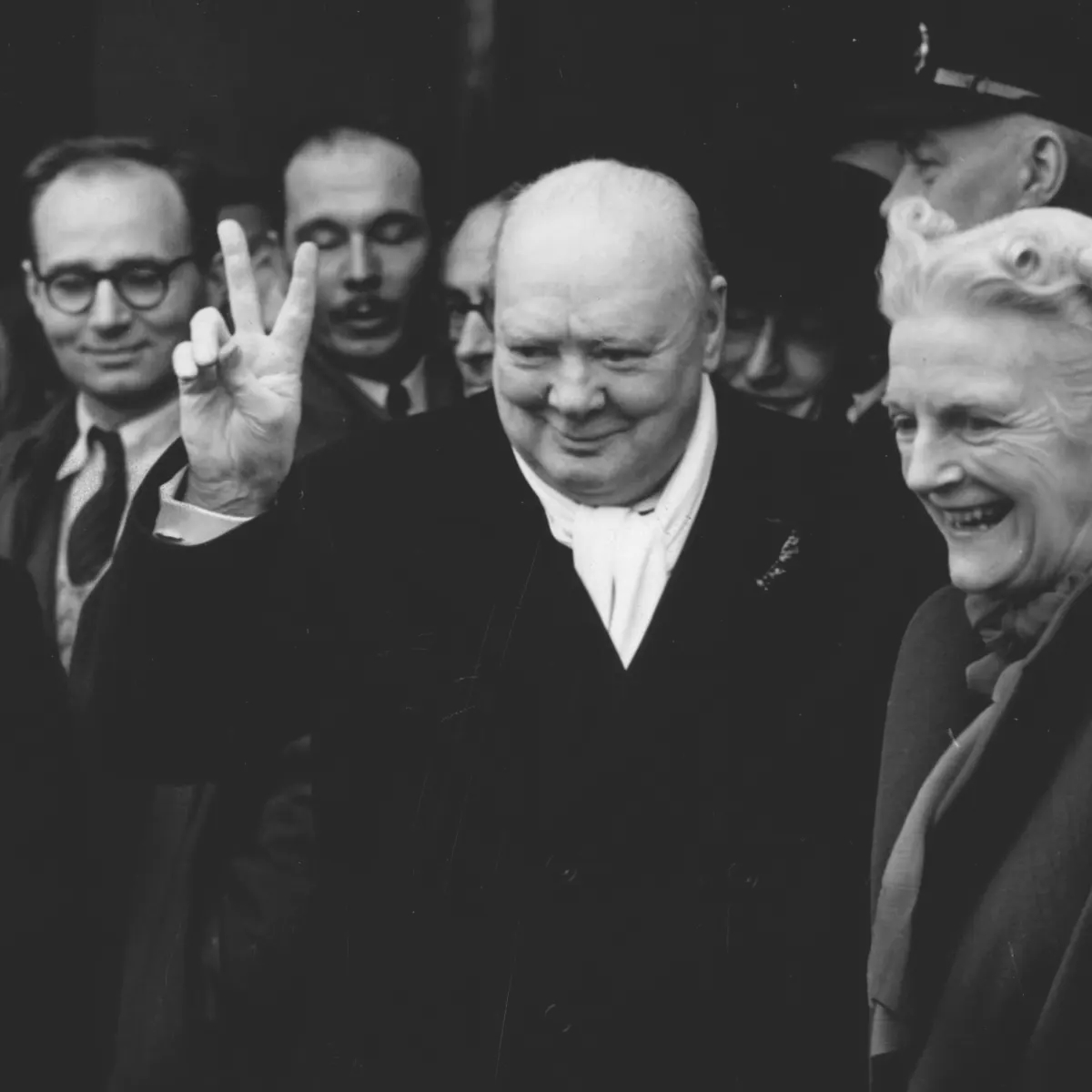
Churchill is back in power as British Prime Minister (1951-1955)
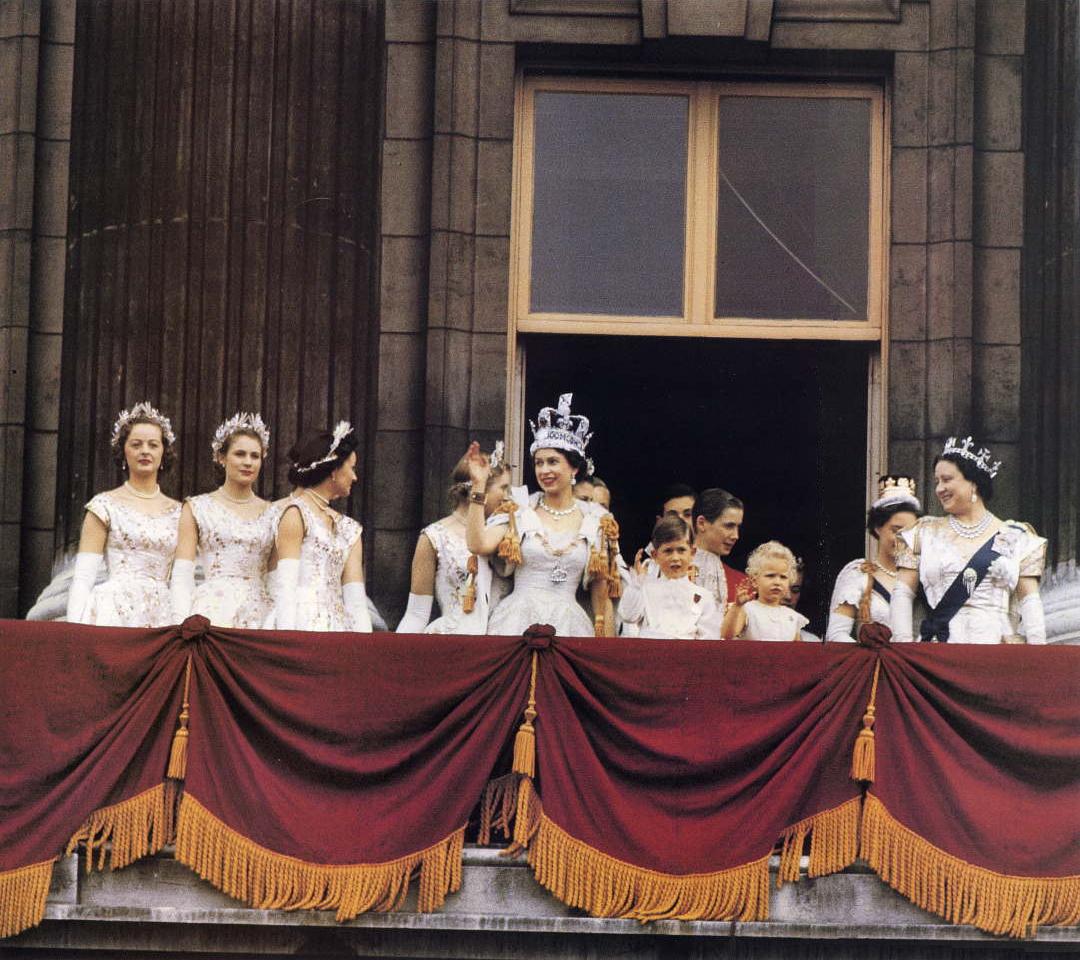
25-year old Elizabeth's coronation
day in London - 1953
THE WEST'S CHRISTIAN IDENTITY |
|
Christianity's decline in Europe
Where did all of this leave the deeper Christian identity that – for
centuries – had been so crucial to the idea of Western society?
Nationalism certainly had succeeded in becoming itself something of a
religion … that masses of people were willing to live and die
for. Where did such nationalism leave a Westerner's Christian
identity … and all the moral-spiritual aspects that went with it?
Or ... then if nationalism was being replaced by a quite pragmatic
sense of multi-nationalism, the same question still remains. What
was it exactly that Westerners were to understand as their ultimate
call in life? What was it that now constituted their foundational
cosmology (view or understanding of all of life)?
Not surprisingly, the vast majority of Westerners still identified
themselves as "Christian." But what that actually meant in their
daily lives varied widely across the Christian world.
For the Germans, who had linked their Christian identities with
Hitler's program … the post-war period was one of deep shame. But
conservative Catholics in Italy also had little to be proud of.
Indeed it was very hard for all Europeans – Christians as well as Jews
– to link the idea of the full sovereignty of God with the horrors of
the Holocaust and the widespread destruction that took place across
Europe. Why hadn't God intervened? Why did he allow this to
happen? Was, in fact, God really that crucial to the way things
went here on earth?
Likewise, the gradual, then increasingly rapid, economic climb of
Western Europe back to some kind of prosperity seemed to be more a
matter of human planning than anything God was involved with.
True, self-identified Christian Democrats (or some version of such a
political party) were deeply involved widely across Europe in these new
political dynamics – alongside the agnostic or atheistic Social
Democrats. But their leadership did not seem to serve to bring
the common people back to some kind of strongly Christian personal and
social life. Even Easter and Christmas celebrations seemed to be
a declining matter of interest to an increasing number of
Europeans. Clearly, by the 1950s, Christianity appeared to be on
a serious decline ... in both Catholic and Protestant Europe – but
especially in the latter.
Of course in Eastern Europe … this was not even a factor … where the
Communist Party had put itself in the role as some kind of political
priesthood serving Marx's religious Secularism. True, underneath
it all were many dedicated Christians … waiting for an opportunity to
get things back to their pre-Soviet days. And in time they would
have just that opportunity. But now was not the time.
Christianity running strong in America
However in America, the "Christian" situation there seemed to be going
in a direction opposite the one going on in Europe. Christianity
seemed to be ever stronger than it was during the pre-war period.
Perhaps this was because the war's impact on American society was very
different than the impact it had on European society. No towns or
cities were bombed. No huge elements of the population were
carted off to slave camps. Indeed, the war itself had prospered
America greatly, putting industrial America not only back on its feet …
but way ahead of the rest of the world in its magnificence.
Indeed, by 1950, America alone seemed to be producing around 50% of the
world's industrial capacity.
Certainly human hands had built up this grand industrial
society. Yes, capitalists and government officials had played
important roles in all this development.
But in the American heart, it was easy to see God's favor in all of
this. In putting on those uniforms and – at great personal risk –
taking on those fascist powers Japan, Germany, and Italy, they had
trusted God greatly to protect them … or at least guide them in this
dangerous enterprise. And it was easy to see in the victory that
came to them in this war the very hand of God as provider and protector.
Thus indeed, "Middle Americans" were outstandingly loyal in their
Christian devotion – tending to be very regular Sunday Church goers …
and quite observant of what were understood as Christian social rules
and responsibilities.
Truman
The fact that American leadership was strongly Christian – in quite
different ways – was of major importance in this Christian character of
Middle America. President Truman on several occasions called for
a National Day of Prayer … asking the nation to call on God to help the
nation know what to do in the face of the many challenges confronting
it. True, he was not a very active church-going Baptist while in
the White House … but explained this as simply having no time to get
away from the job (he was indeed truly a workaholic!). But his
faith was sincere and not just public performance … for like Lincoln,
Washington and others before him, he understood the importance of
looking to God for his lead in matters.
He truly believed that if the world would simply live by Jesus's Sermon
on the Mount (Matthew chapters 7, 8 and 9) peace would prevail across
the world. But this only brought on public contempt of more
sophisticated souls who saw in his Biblical comments only foolish
ignorance … especially in his hope that living according to Biblical
principles would bring the world a better peace.
But American Christianity itself was not a single phenomenon.
Most sadly, a terrible split would occur between Truman and his
long-time Baptist pastor Edward Pruden … when Truman appointed General
Mark Clark as his personal representative to the Vatican. While
this pleased America's twenty-five million Catholics immensely, it
upset greatly many Protestant conservatives who were deeply suspicious
of any Catholic pro-Vatican "popery."
The Graham crusades
Helping keep the Christian spirit alive in Middle America was the very
young traveling evangelist Billy Graham. He had started out with
an amazing revival – or crusade as he called it – in 1949 in Los
Angeles which over an eight-week period had drawn over 350 thousand
people. The next year he covered the country with his crusades,
from Boston, to Columbia (South Carolina), to Portland, to Atlanta, to
other points in between. By the next year, the Graham name was
well-known across the country, and his crusades were so fully attended
that often masses of people had to be turned away when the stadiums had
become completely filled.
Vereide's prayer breakfast movement. Another person to have a
huge impact in developing the Christian character of America …
especially among its corporate and political leaders was the
Norwegian-born Methodist minister Abraham Vereide. Actually he
got his start during a visit to San Francisco – caught up in a very
violent longshoremen's strike in 1934. There he found himself
leading dispirited businessmen together (capitalists were in great
political-social disfavor at the time!) in extensive prayer – for the
local community, the nation and the world. Upon his return to
Seattle he decided to turn such an event into a regular occurrence,
"prayer breakfasts" … designed to keep up the spirits of wearied
business executives. These proved to be so successful that soon
local politicians found themselves joining these breakfasts.
Then the war itself served to greatly increase the sense of need of
these kinds of prayer movements, and Vereide's prayer breakfasts spread
widely across America, from city to city … eventually becoming a
regular part of the nation's religious and political scene.
Graham and Vereide working together. In early 1952 Graham found
himself in Washington, conducting another one of his crusades … in
which about a third of the senators and a good number of congressmen –
and another half-million people were in attendance (along with millions
more listening on the radio). While there, he found himself also
working closely with Vereide in helping various political leaders focus
on key issues needing a strong Christian touch.
This then inspired Congress to come up with the idea of a National Day
of Prayer as an official act … to which Truman – who generally did not
like public displays of religiosity – ultimately gave his
approval. And thus began the annual National Day of Prayer –
eventually scheduled for the first Thursday in May.
And that same year Vereide was able to get Congress to support the idea
of a National Prayer Breakfast, to be held the following February
(1953) in the nation's capital. And so successful was that event
that it has been held annually ever since.
Eisenhower
At this point (the beginning of 1953) Eisenhower was on the scene as
the American president. And he was very supportive of these
Christian-based events and the key role that they were designed to play
in the shaping of the American nation. Indeed, it would be during
his presidency that the words "under God" would be added to the Pledge
of Allegiance in 1954, and "In God We Trust" would be confirmed as the
nation's motto in 1956. |
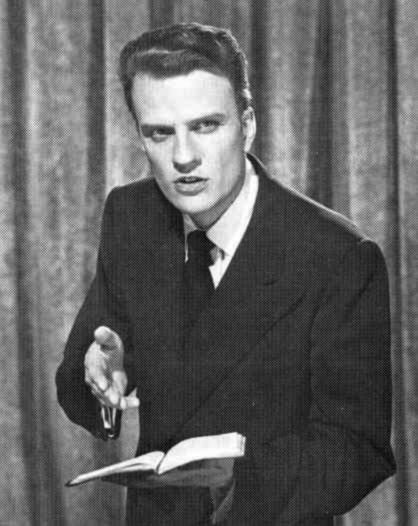 Christian Evangelist Billy
Graham
Christian Evangelist Billy
Graham
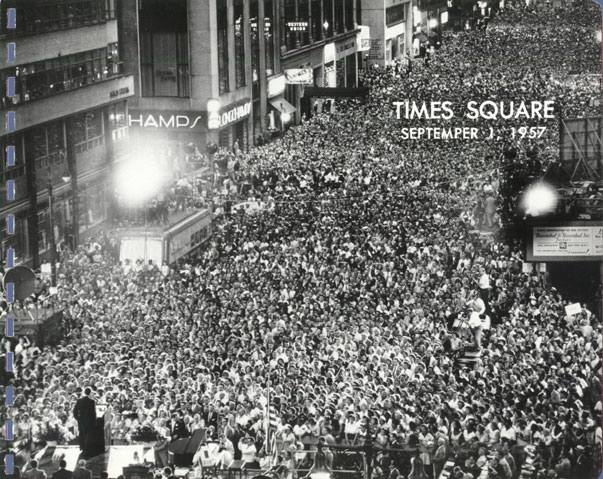
One of Graham's many Christian crusades
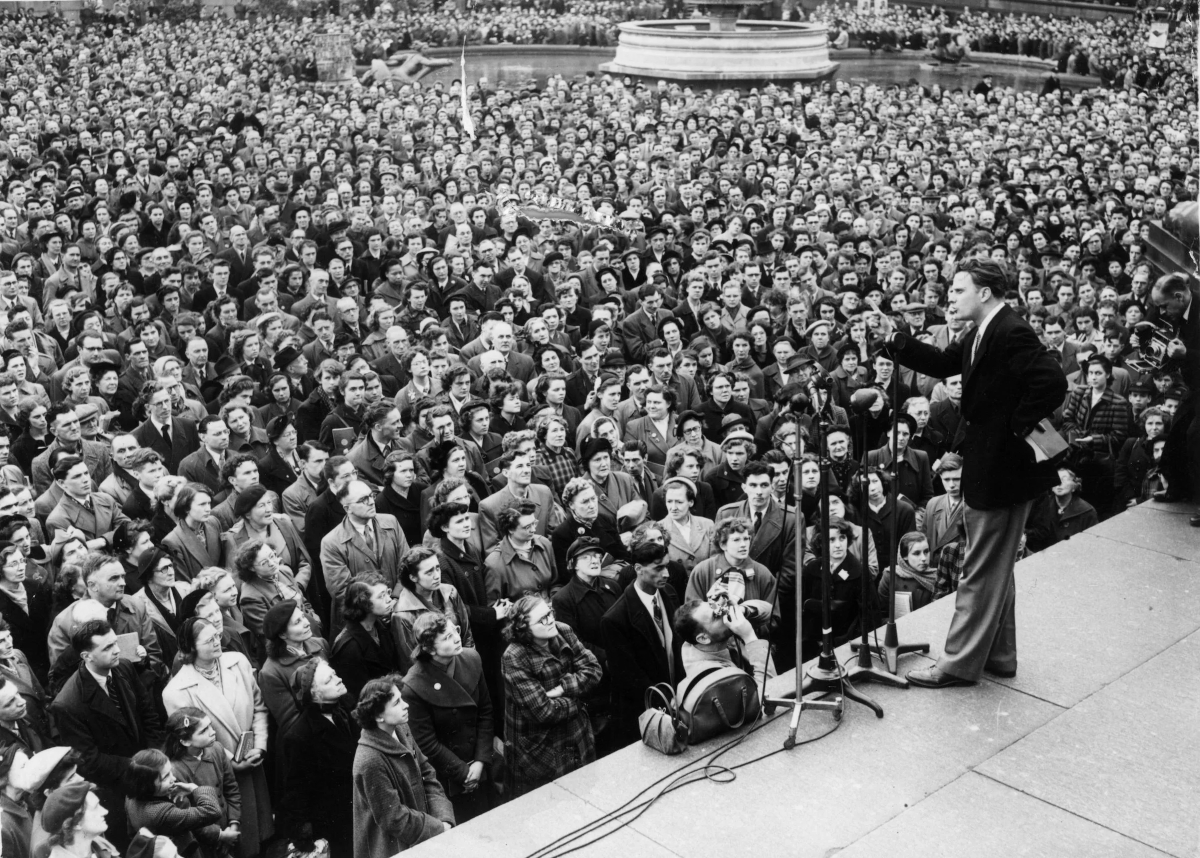
He could even bring out multitudes in London – April 5, 1954
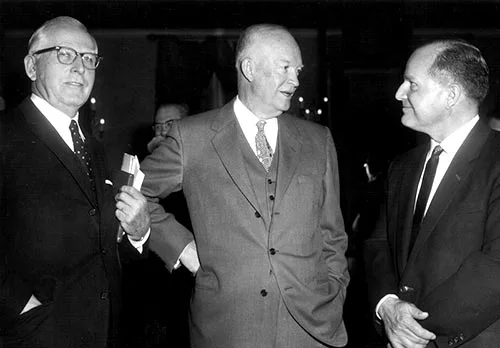
Vereide (left) and Eisenhower at the 1953 National Prayer Breakfast
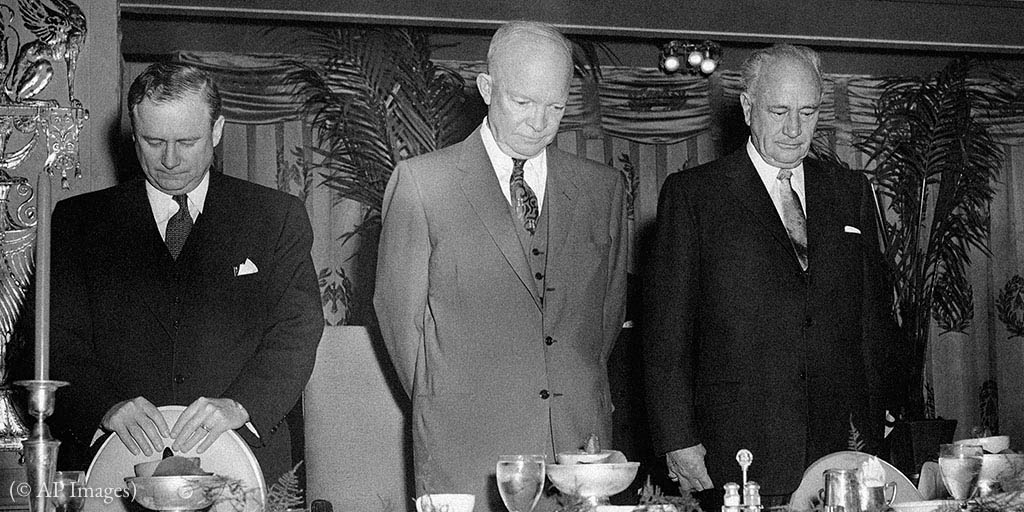
Eisenhower leading the 1956 National Prayer Breakfast
A TRAGIC SPLIT BETWEEN MIDDLE AMERICA AND INTELLECTUALIST AMERICA |
|
1984
Meanwhile the Cold War paranoia was merely building in America during
this time. Not helping matters much was the popularity of a book,
entitled simply 1984, written
by British author George Orwell. The book portrayed a coming world (the
year 1984 … some mere 35 years in the future) in which the move towards
increasing authoritarianism would ultimately produce full
totalitarianism under "Big Brother." This was a monstrous individual
who had at that point completely taken over the thoughts and actions of
what was now basically a global slave society, one caught in perpetual
war with itself.
Certainly there were already plenty of examples of how that
worked. But to think that this was an inevitable development for
everyone frightened enormously the readers (heavily American). |
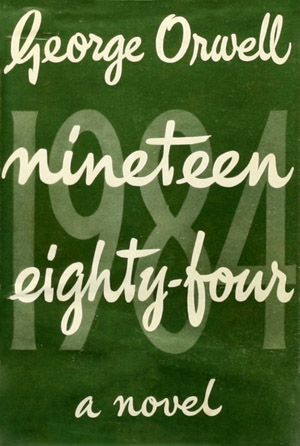 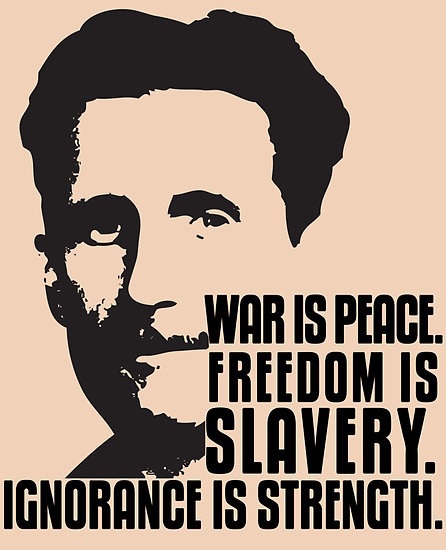 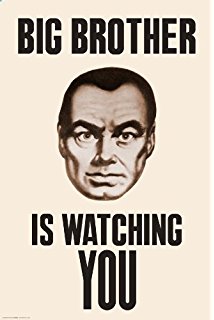 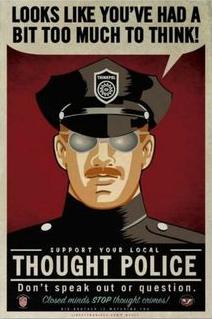
|
McCarthyism
In fact, that same fear was doing some of the work in driving forward
in that very direction even America itself. Cashing in on this
fear was a U.S. Senator from Wisconsin, Joseph McCarthy, who was
looking to increase his importance … when in 1950 he took up the cause
of uncovering a supposedly wide realm of pro-Communist Americans
plotting to overturn their own nation.
Quickly his behavior drew forward great public interest … which he
played to the fullest. He claimed to have a huge list of such
traitors … though the names were never actually revealed – except that
he destroyed the political career of at least one fellow senator with
very false accusations. He would even go forward to make the bold
claim that the U.S. military command structure itself was filled with
individuals "soft on Communism." Tragically, so fearful of this
man and his threats was American officialdom, that little was done to
stop him … not for several years anyway.
|
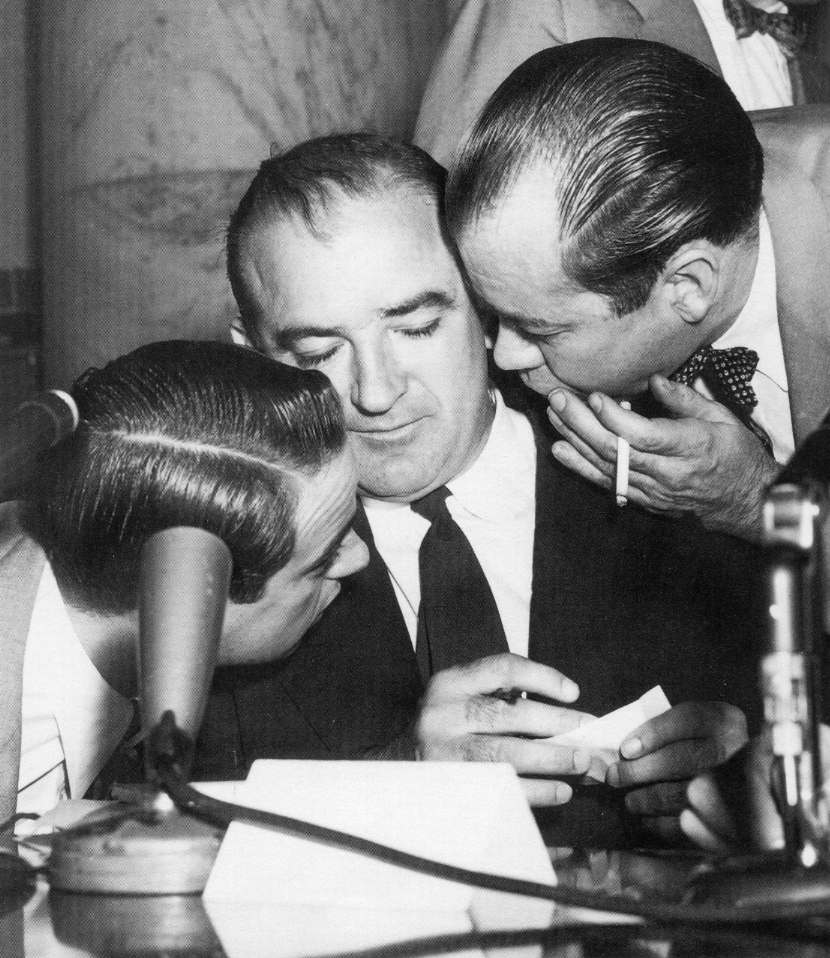
McCarthy consulting with two of his aides
|
More spying in high places
Not helping the situation any was the discovery of what would come
eventually to be termed the "Cambridge Five" … the discovery that a
number of British Cambridge University students had sold their souls to
Communism in the 1930s … and had been recruited by Soviet agents to spy
on their own government in which they served as intelligence
agents. The uncovering of this plot began in 1951 when Donald
Maclean and Guy Burgess were discovered sending intelligence
information to the Soviets (there would be others, such as Kim Philby,
Anthony Blunt and then John Cairncross discovered in future years).
Around the same time (1950-1951) – compliments of the Venona Project
which had cracked the Soviet code and thus was able to expose spying
going on in the West – a German working in the American nuclear
program, Klaus Fuchs, was caught … and then confessed. But in
doing so, he also implicated Harry Gold – which then led to the
discovery of the role of David Greenglass in the spying … and then
ultimately Greenglass's sister Ethel Rosenberg and her husband
Julius. These, and then others as well, were found to have been
passing on to the Soviets all sorts of nuclear secrets … although only
Julius and Ethel Rosenberg – despite their claims of being innocent3 –
were executed for their crimes – despite a huge international cry for
clemency.
Ultimately, all of this merely confirmed the suspicions of Middle
American Vets about how easily intellectuals were seduced and brought
into service by Communism's supposed high Idealism. This then
deepened even further a social-cultural divide between those two key
American groups ... the Middle-American Vets and much of America's
intellectual community.
3With the fall of the Soviet Union in the early 1990s, it was finally revealed that the Rosenbergs (or at least Julius Rosenberg) had indeed been Soviet spies.
Part of the Cambridge Five:
Maclean, Burgess, Philby
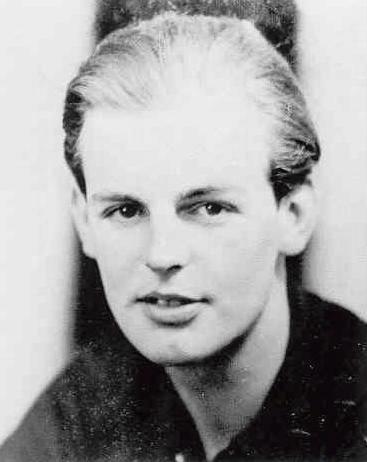

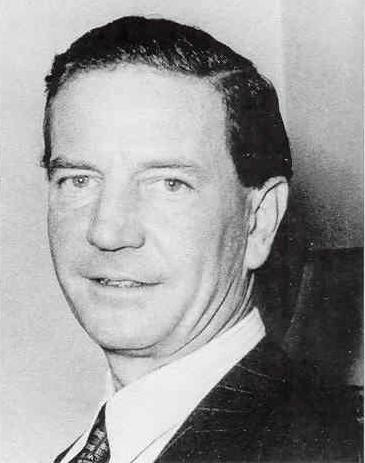
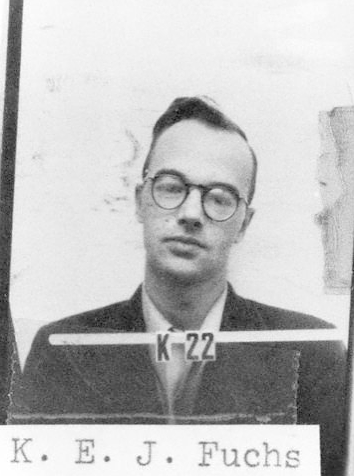
Klaus Fuchs
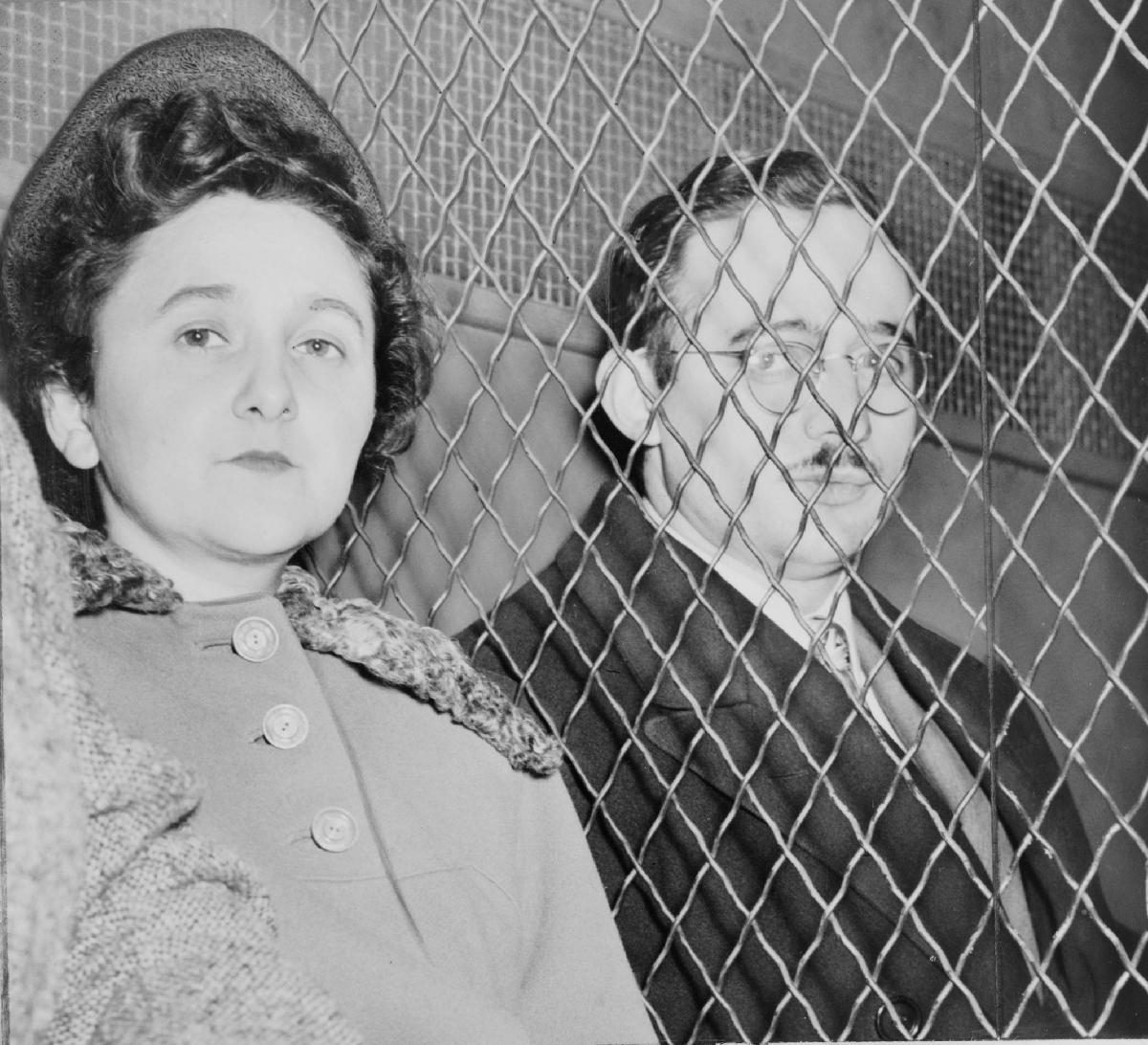
Ethel and Julius Rosenberg
|
The Intellectualist counterstroke: The Crucible
The
intellectuals, of course, fought back – but very carefully, for they
were still in a minority position politically as well as socially.
A major intellectualist counterstroke was issued by the playwright
Arthur Miller, extremely upset that a close friend of his, Elia Kazan,
had given HUAC the names of eight members of his Theater Group who were
fellow Communists. To Miller, this all smacked of a witch hunt …
and wrote about just such a horrible event that had taken place in
Puritan America 2� centuries earlier (the late 1600s) in Salem,
Massachusetts … bringing this long-forgotten event back into
remembrance with his 1953 play, The Crucible.
Interestingly, the play did not do particularly well in the
1950s. But it would be brought back into action in the 1960s …
and become a major weapon of Liberal America against a still very
traditionalist Middle America – ultimately passed on as required
reading to rising American generations (the Boomers, Gen-Xers,
Millennials, and now the Gen-Z) in order to reshape their perception
(very negatively) of "Puritanical" Middle America itself. Thus
ultimately, intellectualist America would win big in its battle with
Middle America.
|
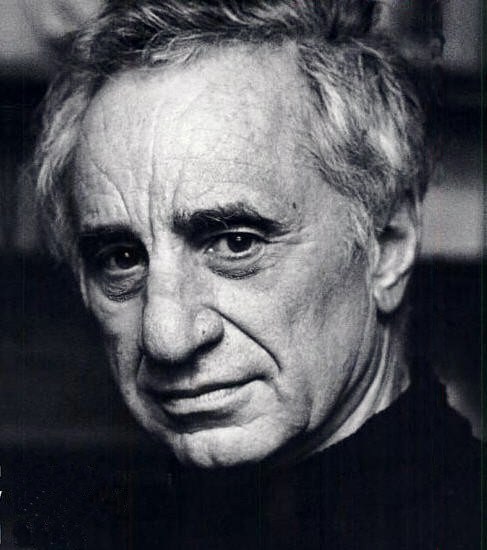
Elia
Kazan
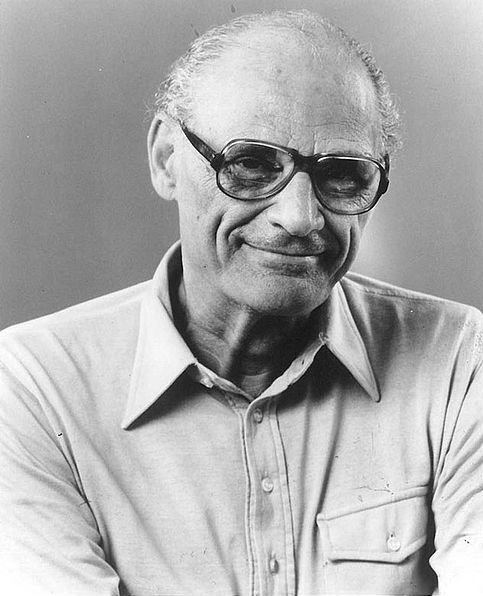
Arthur Miller
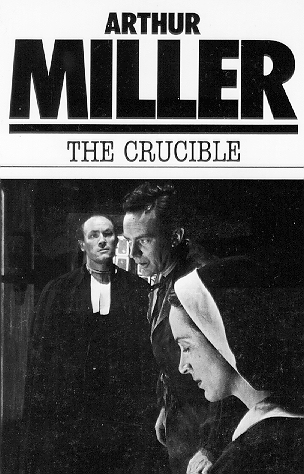
|
McCarthy finally brought down
Tragically, it would take until mid-1954 that the assault on
Intellectualist America by McCarthy could be brought to a halt.
By that time, McCarthy was losing face, when CBS news host Edward R.
Murrow concluded a series of his, See It Now, with a warning to America
of the dangers to American freedom posed by the type of behavior that
McCarthy exemplified. Then in June, during the well-televised
Army-McCarthy hearings, army lawyer Joseph Welch actually went on the
counter-attack, accusing a stunned McCarthy of doctoring his evidence
and just in general acting the part of a charlatan. This then
emboldened fellow senators to make their move, conducting a hearing
that summer concerning McCarthy's senatorial behavior … and voting a
rare act of censure that December. McCarthy would nonetheless
continue to serve – in political isolation – then die an alcoholic's
death in 1957.
The bringing down of McCarthy would ease greatly the Red Scare
inflicting America … at least that part concerning Communism in America
itself. But it would nonetheless still leave a bitterness between
the frightened Middle Americans that had been supportive of McCarthy's
Red Scare … and the angry intellectuals who had been the target of that
most unfortunate political period. This would be a bitterness
that would not really disappear.
|
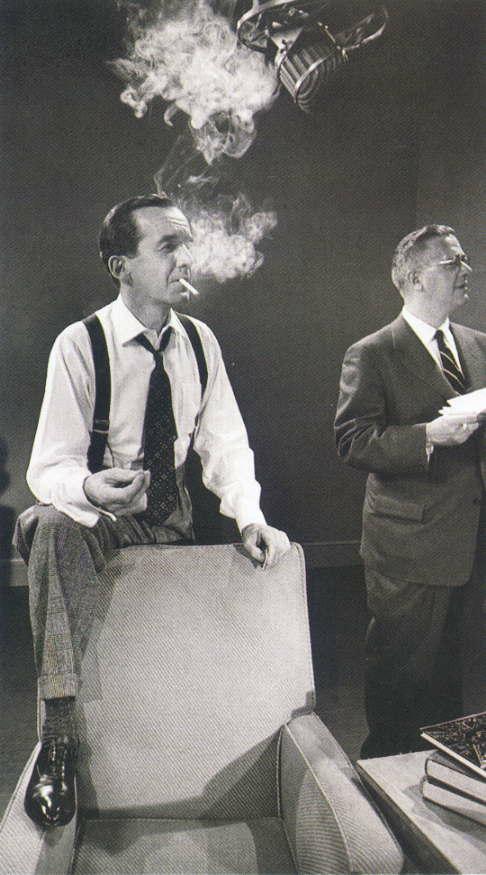
Murrow about to begin his program "See It Now"
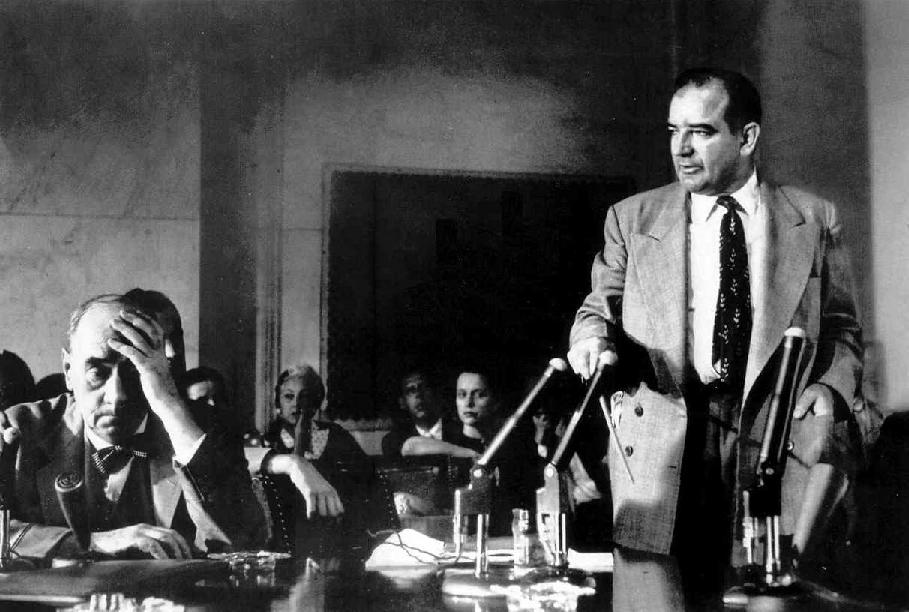
Joseph Welch (left) about to launch a counter-attack against McCarthy (right)
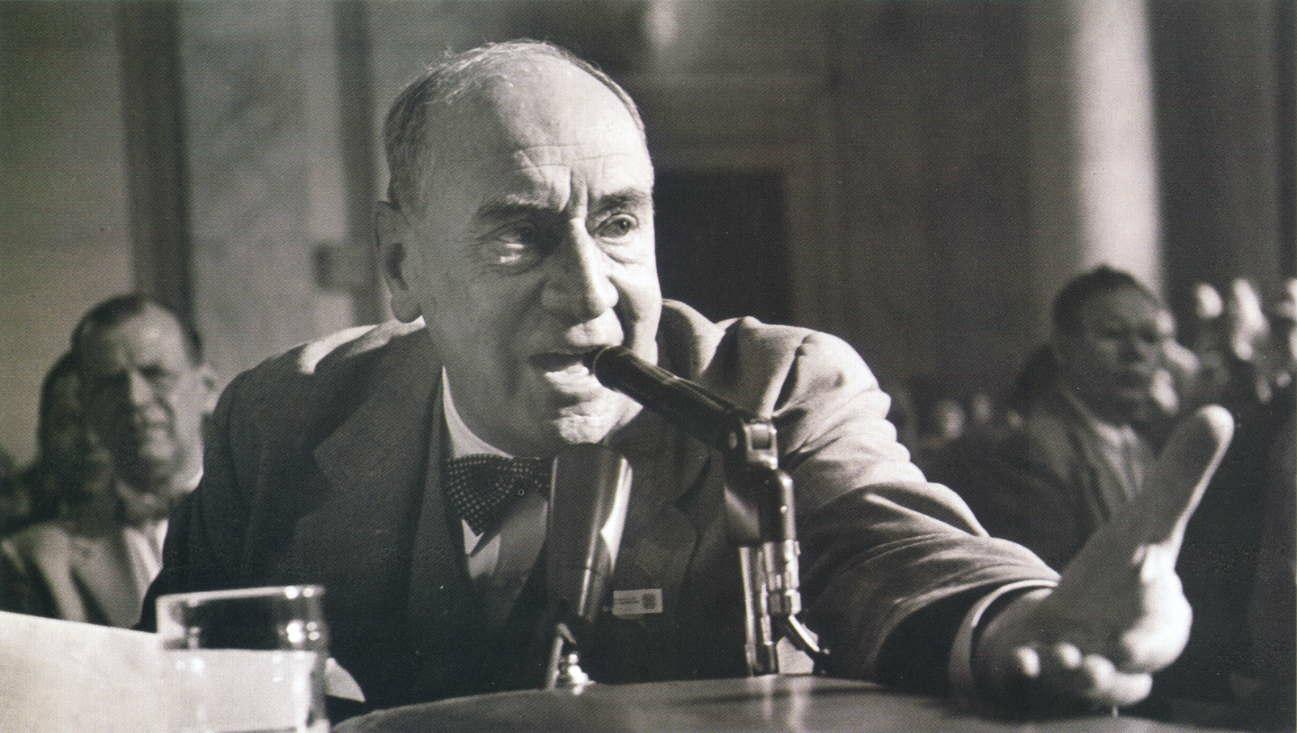
Welch to McCarthy: "Have you no sense of decency, sir?"

Go on to the next section: The Cold War Spreads
 Miles
H. Hodges Miles
H. Hodges
| | | |


 "Democracy" the central issue
"Democracy" the central issue
 Ideological paranoia at home in America
Ideological paranoia at home in America
 A tragic split between Middle America
A tragic split between Middle America






































